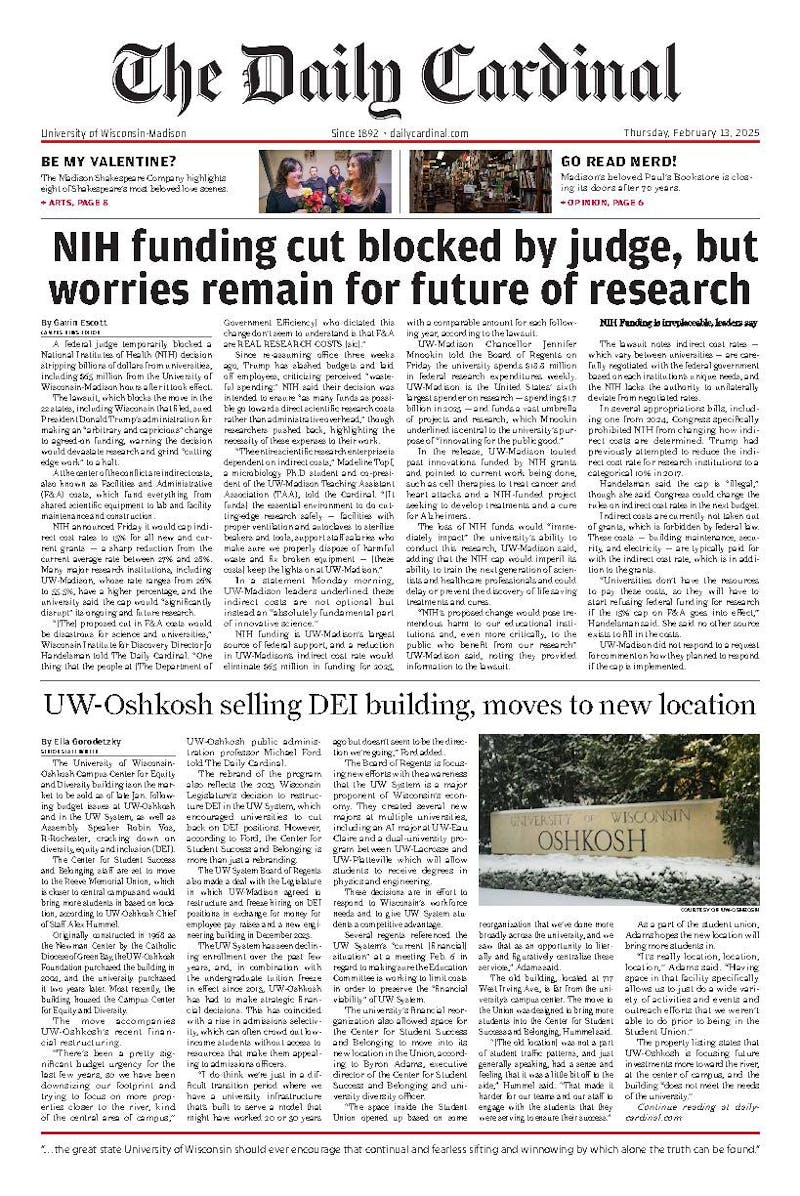Visiting Assistant Professor (VAP) of Korean Studies at the University of Wisconsin-Madison Grace Jung led a talk Tuesday explaining how American product placement in Korean television is a major contributor to K-dramas’ popularity in the United States.
During the event, sponsored by UW-Madison’s Center for East Asian Studies, Jung discussed how product placements from well-known American brands, including Subway and Baskin’ Robbins are near-ubiquitous in K-drama advertisements.
“Anywhere there is an American fast food franchise, there will also be a K-drama advertisement that goes with it,” Jung said. “It just is a really ideal kind of partnership showcasing Korea’s globalization and how down they are with American corporations.”
In recent years, K-dramas have exploded in popularity, reaching audiences around the world. Last December, the dystopian thriller series “Squid Game” debuted its second season on Netflix and broke the record for most views for a show in its premiere week with 68 million views. While “Squid Game” season two is undoubtedly a Netflix hit, brands like Puma and Vans, which are featured on the character’s iconic teal tracksuits, have also seen great success from the show’s product placements.
Viewers will likely take notice of product placements without knowing the reason behind it, Jung said.
Jung cited the K-drama “Guardian: The Lonely and Great God” as a prime example of product placement advertising, as many scenes were set in a Subway sandwich shop featuring the foot-long sandwiches. For American franchises like Subway and Baskin’ Robbins, advertising in K-dramas is highly effective, because it isn’t just seen by South Korean viewers, but people all over the world.
Korean and American advertising are tied in other ways, too, Jung said. South Korea’s broadcasting history began with American television and military presence in the country, and they adapted product placement advertising seen in early American television programs like “I Love Lucy.”
Production companies within South Korea also have a stake in K-dramas’ food product placements, because their television industry was built on food conglomerates like CJ, Lotte and Orion that started manufacturing and distributing foods alongside the entertainment industry.
Today, CJ Entertainment owns Studio Dragon, which produces shows like “Crash Landing on You” and “It’s Okay to Not Be Okay,” while Lotte Entertainment produced the show “Thirty-Nine” and Orion owns the film production company Showbox.
“The common throughline is that they all sell food, so that’s where product placement comes in. It becomes like an ecosystem that maintains their own production culture,” Jung said.
Coffee franchises are also huge corporate sponsors for K-dramas, leading to many scenes taking place in coffee houses, but it wasn’t always this way.
Starbucks was the first major coffee franchise in South Korea, opening its first store in 1999. It initially faced strong backlash from consumers who viewed the brand as a cultural threat to Korean culture and consumer spending. Now, buying coffee at large coffee franchises like Starbucks is equated with luxurious living and South Korea’s developed status, Jung said.
“South Korea now has an infinity of Korean coffee houses throughout the nation, and these coffee franchises are huge corporate sponsors for K-dramas that are globally pursued, and dominate Korean and global airways and streaming platforms,” Jung said.
Jung’s talk was drawn from her book, “K-Drama School: A Pop Culture Inquiry into Why We Love Korean Television.”






